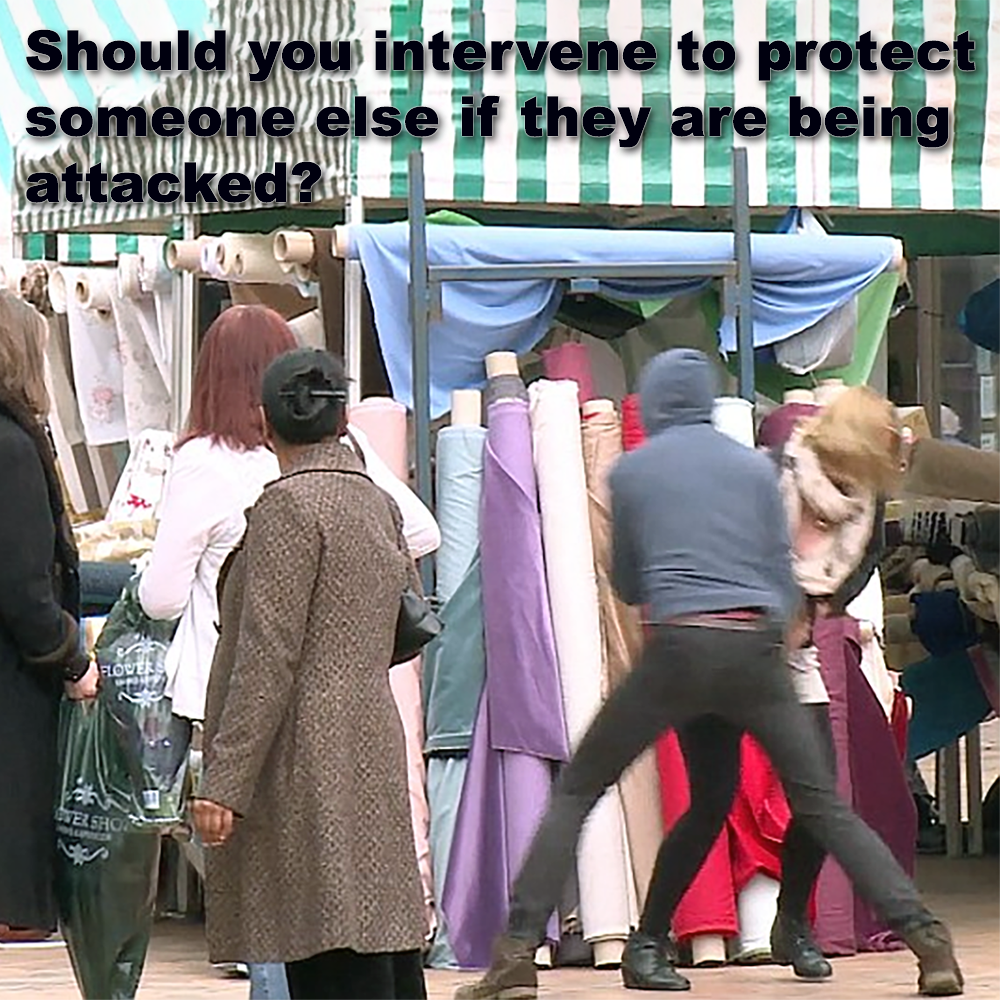
(1 minute 55 second read)
Should you intervene to protect someone else if they are being attacked?
.
Witnessing someone being attacked can evoke a strong impulse to intervene and protect the victim.
.
However, if you do decide to intervene, above all else, the first thing you have to consider is your own safety.
.
The decision to intervene is not always straightforward and involves quickly assessing the situation. You may not have a lot of time to make a decision, but it’s imperative to determine the severity of the attack and whether the person being targeted is in immediate danger….. if possible, ascertain who the aggressor is.
.
So don’t not rush in, consider what is actually happening.
.
If the situation appears life-threatening or the victim is unable to defend themselves, then some form of intervention may be necessary.
.
Your objective, if you choose to intervene, should be to stop the fight rather than engage in one yourself.
.
Do you have the ability to get involved without putting yourself at significant risk? If the attacker is armed or the situation seems too dangerous, it may be safer to seek help.
.
The best approach is to de-escalate the situation without putting yourself or the victim at further risk.
.
If you’re unsure about intervening physically, seek help from others, in some cases, a group intervention may be safer and more effective than acting alone.
.
You have to seriously consider your own abilities and limitations. If you’re not trained in the martial arts, self-defense or conflict resolution, attempting to intervene physically could just escalate the situation, make things worse, getting yourself or others seriously hurt.
.
Do you know everything that’s going on? Do you know everything that’s happened up until you arrived on the scene? Do you know all the context of what you are witnessing if you choose to intervene? – Probably not.
.
The decision to intervene in any form of attack is a heavy one, a split-second choice that can have lasting consequences.
.
While the urge to protect another human being is noble, it’s crucial to prioritize your own safety, understand the legal implications, and carefully assess the situation before taking action.
.
Sometimes, the most courageous act is the one that requires restraint. Calling for help, de-escalating the situation, or simply being a witness who can later provide valuable information – these can all be powerful forms of intervention.
.
The truth is, there’s no single right answer. Every situation is unique, demanding a different response. But by being prepared to act within your capabilities, you can make a positive difference in the face of violence.
.
When faced with witnessing an attack, will you be a bystander, or will you find the courage to act, in whatever way you can?
